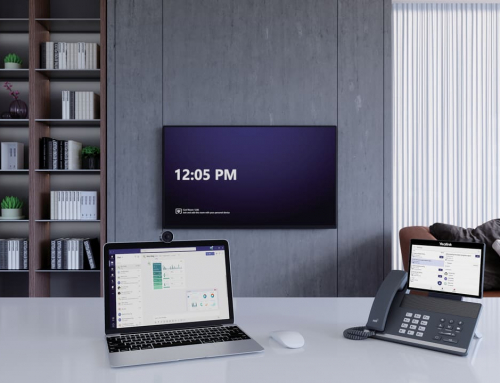We all would have heard about VoIP devices at least once, and many of us would have used them regularly. VoIP devices are a common sight in offices and professional facilities. Despite its familiarity, many do not know more about VoIP except that they are phones. In this blog, we have explored the history behind VoIP phones and their importance.
What is a VoIP Phone?
When the landline used to rule our homes and businesses, VoIP was the innovative breakthrough that upgraded communication. VoIP stands for Voice over Internet Protocol. VoIP phone systems transformed the communication methods by making them seamless and cost-efficient. Regular phones used landline networks whereas, VoIP phones leveraged the internet that enhanced the sound and call quality phenomenally. Another notable difference in VoIP systems is the minimalistic usage of wiring and subsidiary parts, making them ideal for official purposes.
Types of VoIP Phones
Today, VoIP phones of different brands are available in the market. They majorly fall into two categories: Soft Phones and Hard Phones.
Softphones
Softphones refer to modern devices with an internet connection that facilitates VoIP calls. Softphone devices are built with software that enables the users to place unlimited calls through VoIP networks.
Hard Phones
Hard phones refer to conventional phone devices. The only difference that distinguishes them from a regular phone is their ability to connect over the internet.
The Working Methodologies
VoIP phones work similarly to regular phones except for the difference in connecting networks. In landline phones, your voice calls travel through the dedicated telephone lines. In a VoIP call, the voice of a caller is encoded into digital data, which is further converted into voice at the receiver’s end. While conventional phone devices require a lot of wirings and physical devices to be installed within proximity of the telephone line, VoIP does not need such complex patterns. VoIP phones can be placed anywhere since they are connected via the internet.
A major advantage of VoIP phones is that it transmits calls seamlessly without external disruption. Due to their countless features, VoIP phones are becoming a staple in organizations. Apart from their superior call quality, VoIP phones are cost-effective and easy to use. Unlike regular phones, VoIP phones have minimal hardware issues, thereby making them ideal for professional usage.
Features of a VoIP Phone
Most VoIP phones have a regular physical appearance of a dial pad, receiver, and a small screen. The latest advancements in the VoIP sector have brought out some incredible devices that transform communication. A few outstanding features of VoIP phones include:
1. Connection via Wifi or Ethernet
2. Provisions for Bluetooth
3. Advanced connection protocols
4. Audio conferencing provisions
5. User-friendly interface
6. Free calls
7. Call diversion within the enterprise
8. Superior voice quality
9. Ability to add participants to a call
10. Ideal for International calls
11. No time limit per call
VoIP Phones for Business
VoIP phones are quickly replacing standard phones because of their extended features. VoIP phones are considered an investment since they simplify, enhance, and streamline communication in a professional enterprise. VoIP phones are practical and add value to business processes. Choosing a VoIP phone for business can transform your communication modes. CosmicTech is India’s only authorized distributor of Yealink VoIP phones. Click here to learn more about the Yealink range of VoIP devices.







